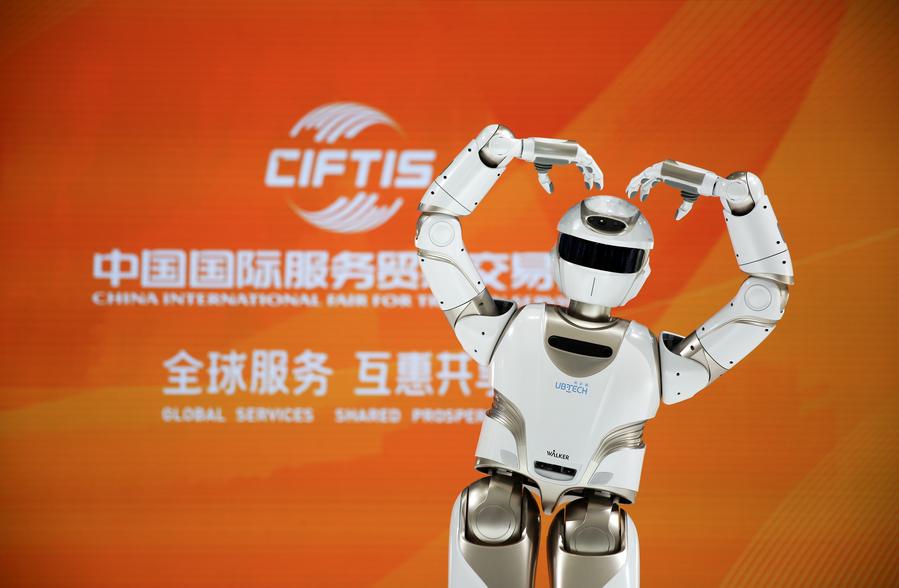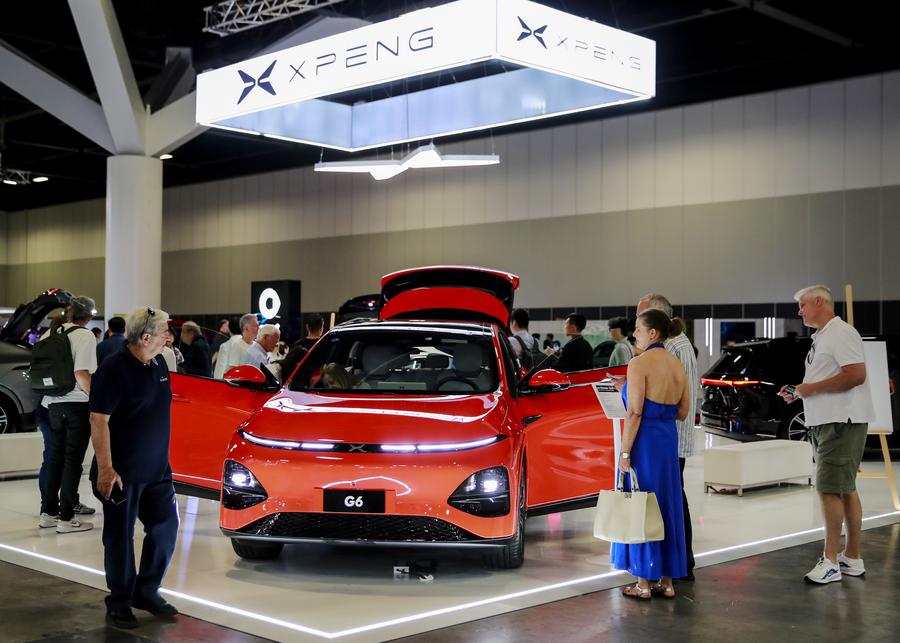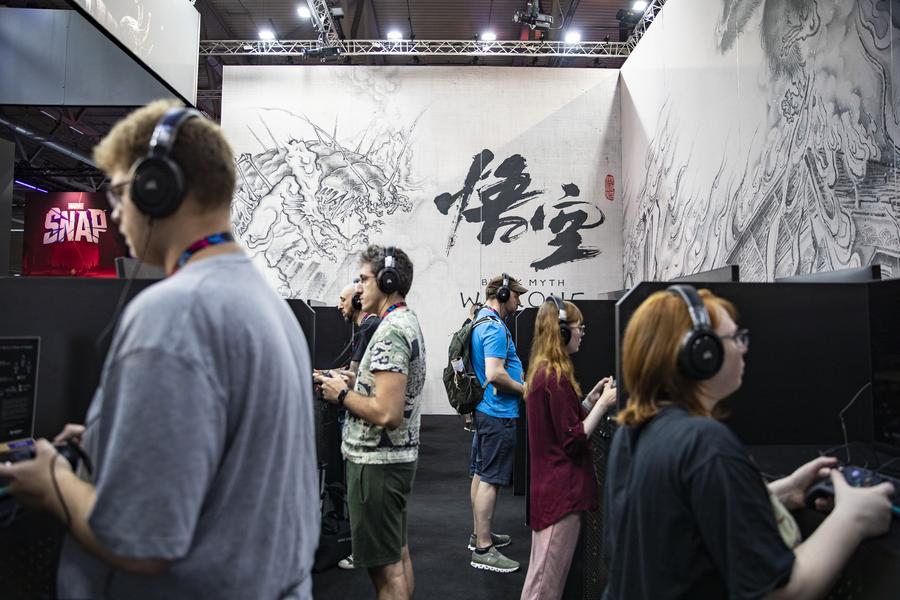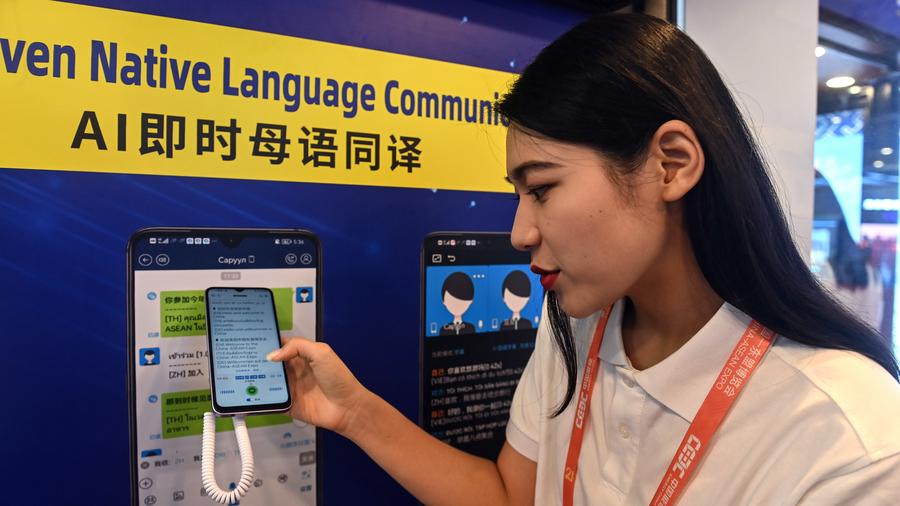
Chinese enterprises are transitioning from simple product exports to a broader model that includes supply chains, branding and cultural influence, according to enterprises and experts.
At the recent 2024 China Enterprise High Quality Overseas Forum in Beijing, experts and industry leaders shared insights into how Chinese companies can strategically expand globally, embracing high-quality development in increasingly complex overseas markets.
Long Yongtu, China's former chief negotiator for its entry into the World Trade Organization, highlighted the necessity of global expansion as part of China's economic evolution.
"When a country's economy reaches a certain level, and its enterprises mature, going global is a historical inevitability and a result of long-term and consistent reform and opening-up policies. For Chinese manufacturing, overseas expansion is not just an opportunity, but a vital stage in its growth," Long said.
ALSO READ: Chinese SOEs pumping large sums into R&D
Long said that forming strong local partnerships to reach mutual benefits and win-win scenarios is key to achieving stability.
He cited the example of the completion of the China-Laos Railway having helped make Laos a major exporter of durian.
"Now more than 95 percent of its durian sales are in China. Many investors invest in durian plantations in Laos to stimulate local economic development," said Long.
Bai Chong'en, dean of Tsinghua University's School of Economics and Management, which is celebrating its 40th anniversary this year, spoke on the importance of considering the perspectives of host countries.
"When companies go global, they should not only think from their own perspective, but also from others' perspective. This inclusiveness can enhance long-term capabilities, as companies gain new markets, talents, and partners," Bai said.

Bai also called for a dual focus on learning and contributing.
"As a multinational corporation, it's essential to learn from others, continuously enhance abilities and think about what Chinese enterprises can contribute globally. This exchange is mutually beneficial," he added.
As one of China's global pioneers, Lenovo's journey has become a model for other companies. Lenovo Group's Chairman and CEO Yang Yuanqing reflected on the company's 20-year global expansion, which began with its acquisition of IBM's PC business in 2004.
"This acquisition remains a significant milestone," he said.
Yang outlined Lenovo's "three pillars" for successful globalization — a robust supply chain, a global R&D system and a worldwide marketing network.
READ MORE: China's auto sales up 7% in October
"These are essential capabilities that every Chinese company going global should develop," he said, adding that digital transformation and adherence to environmental, social and governance standards underpin these efforts.
Rooted in China, Lenovo's strategy has focused on expanding internationally while empowering operations domestically.
"Lenovo's production, research and development, and workforce remain largely in China. Through overseas market engagement, we can contribute vitality to China's economic growth," Yang said.
For companies aiming to succeed internationally, Yang offered three suggestions — focus on building globally recognized brands through localized product innovation, establish resilient supply chains close to target markets, and foster a positive corporate image through community collaboration.

"Going global is more than just expanding abroad. It's about becoming a respected part of local markets," he said.
Zhejiang Geely Holding Group, China's largest private carmaker, has demonstrated steady growth in overseas markets, achieving 40 percent in terms of the number of cars sold and more than 50 percent of sales revenue recorded abroad last year.
Geely CEO Li Donghui cited the company's emphasis on innovation as a driver of global competitiveness. The company has set up 10 research centers globally.
"Technological innovation is core to going global," Li said, noting the importance of balancing global reach with localized approaches.
Geely focuses on regional coordination, ensuring that globalization and localization complement each other, contributing to local industry development.
"For sustainable development, companies must possess strong governance capabilities that align with modern global standards," Li added.
For Miniso, going global since 2015 has been about more than just store openings.
Founder Ye Guofu highlighted that Miniso's strategy has focused on what he terms "interest-based consumption" — a model centered on lifestyle and emotional value for consumers.
READ MORE: Expo drives local NEV ambition
"Today's consumers want more than functional products. They value experiences and emotional joy," Ye said.
Miniso's new brand strategy, the Global IP Joint Collection Store, focuses on partnerships with popular intellectual properties worldwide.
"We collaborate with over 150 well-known IPs to design unique products," he added. "Our vision is to become the world's leading IP design retail group."
Miniso's success in Indonesia, where the company opened a 3,000-square-meter store in Jakarta, reflects the power of its model in young, vibrant markets, he said.
"Indonesia has a youthful population, and Miniso's growth there is strong," Ye said. "Young consumers want fun, engaging shopping experiences, which is exactly what we provide."

As Chinese companies expand their global footprint, they continue to face both opportunities and challenges. With robust strategies focused on technology, inclusiveness and community partnerships, these enterprises aim to establish themselves not just as global players, but as local contributors in every market they enter, he said.
"Without courage, there's no success," said Ye, and urged Chinese entrepreneurs to boldly step into international markets. "Chinese enterprises should confidently move forward and embrace the world, starting with Southeast Asia."
Wu Dan, CEO of Hero Games and the first investor and co-producer of China's first AAA game, Black Myth: Wukong, has seen the game become a global sensation since its release in August. Inspired by the classic novel Journey to the West, it has captivated players worldwide with its rich storytelling and high-quality production.
Wu echoed Ye's sentiment that "going overseas requires courage", particularly in the gaming industry's R&D efforts on a global scale.
READ MORE: CIIE showcases opportunities from China's opening-up
"Many people don't fully understand China's current standing in the gaming world," he noted. "For example, nearly 50 percent of our users are already international, with around 15 million players outside the Chinese market."
The company has successfully entered markets in Southeast Asia and South America, but Wu acknowledged that their operations in North America have been challenging.
"Our games haven't fully matched local tastes, and strong localization is essential to succeed in any market," he explained. "That's something we're still working to improve."
Wu pointed to the importance of localization in promoting Black Myth: Wukong globally.
"When we started marketing in the United States, we discovered that US players were searching for 'Sun Wukong' in pinyin, drawn by his heroic qualities," he said. "In Europe and Thailand, audiences are more interested in the historical aspect, while in Japan, players often search for 'Black Myth'."


